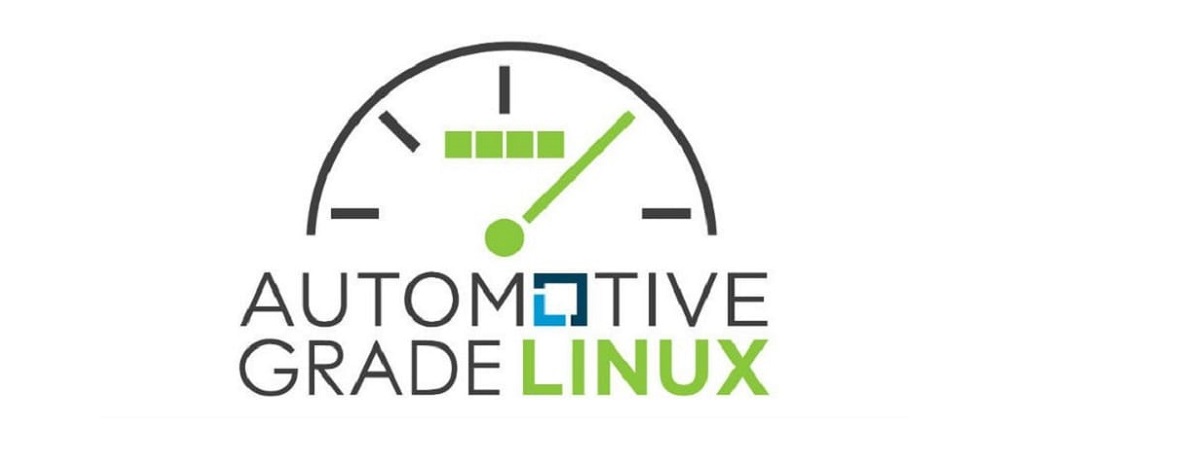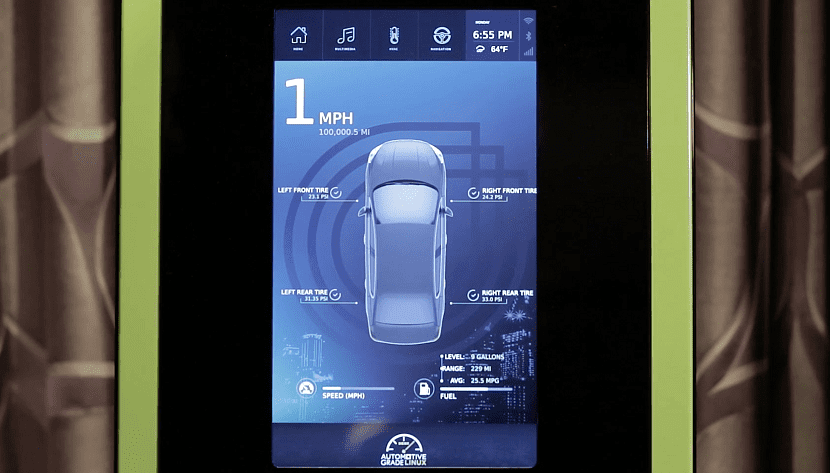
The Linux Foundation presented the new edition of the AGL UCB 9.0 distribution (Automotive Grade Linux Unified Code Base) that is developed as a universal platform for use in a variety of automotive subsystems, from dashboards to automotive infotainment systems.
The distribution it is based on the developments of the Tizen, GENIVI and Yocto projects. The graphical environment is based on Qt, Wayland, and Weston IVI Shell project developments.
The companies involved in the development of the project include renowned brandsSuch as Toyota, Ford, Nissan, Honda, Jaguar Land Rover, Mazda, Mitsubishi and Subaru.
About AGL UCB
Automakers can use AGL UCB as a framework to create final solutions, after carrying out the necessary adaptations for the equipment and customization of the interface.
The platform allows you to focus on application development and your own methods to organize the user's work, without thinking about the low-level infrastructure and minimize maintenance costs.
The project is completely open: all components are available under free licenses. A set of functional prototypes of typical applications written using HTML5 and Qt technologies is provided on the platform.

For example, there is an implementation of the home screen, web browser, dashboard, navigation system (using Google Maps), climate control, a media player with DLNA support, an interface for configuring the audio subsystem, a program for reading news.
Components for voice control, information retrieval are also offered, interaction with a smartphone via Bluetooth and connection to a CAN network for access to sensors and data transfer between vehicle nodes.
Main news of AGL UCB 9.0
In this new edition the improved support for network functions and settings, as como también the significantly improved performance of HTML5-based applications, In addition, the API for Bluetooth was redesigned and support for pbap and map Bluetooth profiles was extended.
Applications based in HTML5 they have added support for token-based access, an image was proposed with only HTML5 applications using Web App Manager (WAM) and Chromium and demo HTML apps were added for the home screen, App Launcher, Dashboard, Configurator, Media Player, Mixer, HVAC, and Chromium Browser.
On the other hand, the extended reference implementations of applications were written in QML, such is the example of an updated implementation of the dashboard that supports CAN message processing from the steering wheel and multimedia buttons, another is the ability to use buttons on the steering wheel to control the automotive information system.
In addition, Upgraded hardware support for: Renesas RCar3 BSP 3.21 (M3/H3, E3, Salvator), SanCloud BeagleBone Enhanced with support for Automotive Cape, i.MX6 and Raspberry Pi 4.
As for updates, added support for OTA update delivery (Over-the-Air) for OSTree technology-based environments, allowing you to manipulate the system image as a whole with the ability to update individual files and version the overall system health.
Of the other changes that stand out from this new version are:
- Application Framework implements token-based authorization.
- Expanded API for speech recognition and improved integration with speech agents.
- Added support for Alexa Auto SDK 2.0.
- A new open version of the screen interface is proposed to manage speech recognition.
- The audio subsystem has improved support for the PipeWire media server and WirePlumber session manager.
- A preliminary implementation of the new home screen and window manager is proposed (activated by selecting 'agl-composer').
Download
Finally, for those who are interested in being able to test this system, they should know that the builds offered were built to the boards QEMU, Renesas M3, Intel Up², Raspberry Pi 3 and Raspberry Pi 4.
In addition to community involvement, builds are being developed for NXP i.MX6, DragonBoard 410c, Intel Minnowboard Max (Atom E38xx), and TI Vayu boards. The source code of the project achievements is available via Git.